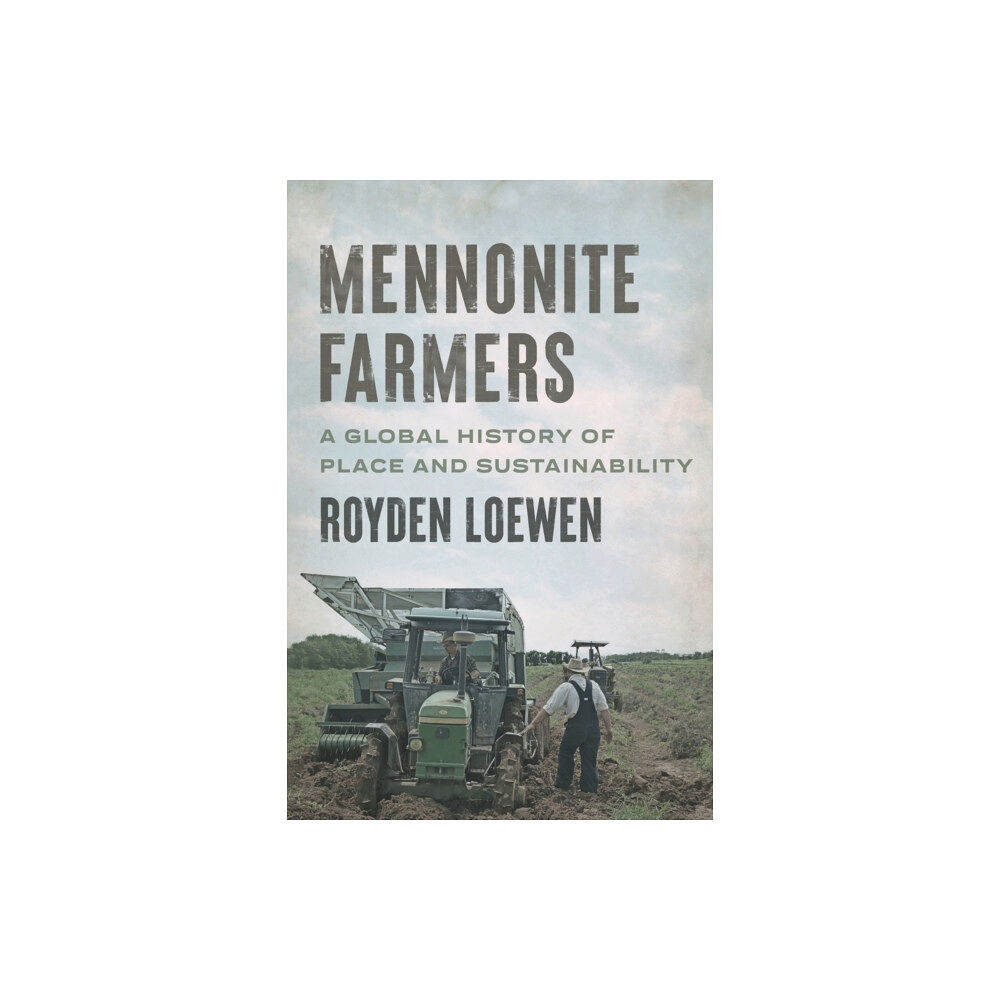- Hem
- Böcker
- Kurslitteratur
- Filosofi, Religion & Etik
- Mennonite Farmers (häftad, eng)

Mennonite Farmers (häftad, eng)
A comparative global history of Mennonites from the ground up. Winner of the Dale W. Brown Book Award for Outstanding Scholarship in Anaba...
645 kr
Slut i lager
- Fri frakt
Fri frakt över 299:-
Snabb leverans
Alltid låga priser
Produktbeskrivning
A comparative global history of Mennonites from the ground up. Winner of the Dale W. Brown Book Award for Outstanding Scholarship in Anabaptist and Pietist Studies, Shortlisted for the Wallace K. Ferguson Prize by the Canadian Historical Association, Nominee of the Margaret McWilliams Award by the Manitoba Historical SocietyMennonite farmers can be found in dozens of countries spanning five continents.
In this comparative world-scale environmental history, Royden Loewen draws on a multi-year study of seven geographically distinctive Anabaptist communities around the world, focusing on Mennonite farmers in Bolivia, Canada, Indonesia, the Netherlands, Russia, the United States, and Zimbabwe.
These farmers, who include Amish, Brethren in Christ, and Siberian Baptists, till the land in starkly distinctive climates. They absorb very disparate societal lessons while being shaped by particular faith outlooks, historical memory, and the natural environment. The book reveals the ways in which modern-day Mennonite farmers have adjusted to diverse temperatures, precipitation, soil types, and relative degrees of climate change.
These farmers have faced broad global forces of modernization during the twentieth and early twenty-first centuries, from commodity markets and intrusive governments to technologies marked increasingly by the mechanical, chemical, and genetic. Based on more than 150 interviews and close textual analysis of memoirs, newspapers, and sermons, the narrative follows, among others, Zandile Nyandeni of Matopo as she hoes the spring-fed soils of Matabeleland's semi-arid savannah; Vladimir Friesen of Apollonovka, Siberia, who no longer heeds the dictates of industrial time of the Soviet-era state farm; and Abram Enns of Riva Palacio, Bolivia, who tells how he, a horse-and-buggy traditionalist, hired bulldozers to clear-cut a farm in the eastern lowland forests to grow soybeans, initially leading to dust bowl conditions.
As Mennonites, Loewen writes, these farmers were raised with knowledge of the historic Anabaptist teachings on community, simplicity, and peace that stood alongside ideas on place and sustainability. Nonetheless, conditioned by gender, class, ethnicity, race, and local values, they put their agricultural ideas into practice in remarkably diverse ways.
Mennonite Farmers is a pioneering work that brings faith into conversation with the land in distinctive ways.
In this comparative world-scale environmental history, Royden Loewen draws on a multi-year study of seven geographically distinctive Anabaptist communities around the world, focusing on Mennonite farmers in Bolivia, Canada, Indonesia, the Netherlands, Russia, the United States, and Zimbabwe.
These farmers, who include Amish, Brethren in Christ, and Siberian Baptists, till the land in starkly distinctive climates. They absorb very disparate societal lessons while being shaped by particular faith outlooks, historical memory, and the natural environment. The book reveals the ways in which modern-day Mennonite farmers have adjusted to diverse temperatures, precipitation, soil types, and relative degrees of climate change.
These farmers have faced broad global forces of modernization during the twentieth and early twenty-first centuries, from commodity markets and intrusive governments to technologies marked increasingly by the mechanical, chemical, and genetic. Based on more than 150 interviews and close textual analysis of memoirs, newspapers, and sermons, the narrative follows, among others, Zandile Nyandeni of Matopo as she hoes the spring-fed soils of Matabeleland's semi-arid savannah; Vladimir Friesen of Apollonovka, Siberia, who no longer heeds the dictates of industrial time of the Soviet-era state farm; and Abram Enns of Riva Palacio, Bolivia, who tells how he, a horse-and-buggy traditionalist, hired bulldozers to clear-cut a farm in the eastern lowland forests to grow soybeans, initially leading to dust bowl conditions.
As Mennonites, Loewen writes, these farmers were raised with knowledge of the historic Anabaptist teachings on community, simplicity, and peace that stood alongside ideas on place and sustainability. Nonetheless, conditioned by gender, class, ethnicity, race, and local values, they put their agricultural ideas into practice in remarkably diverse ways.
Mennonite Farmers is a pioneering work that brings faith into conversation with the land in distinctive ways.
| Format | Häftad |
| Omfång | 352 sidor |
| Språk | Engelska |
| Förlag | Johns Hopkins University Press |
| Utgivningsdatum | 2021-12-28 |
| ISBN | 9781421442037 |
Specifikation
Böcker
- Häftad, 352, Engelska, Johns Hopkins University Press, 2021-12-28, 9781421442037
Leverans
Vi erbjuder flera smidiga leveransalternativ beroende på ditt postnummer, såsom Budbee Box, Early Bird, Instabox och DB Schenker. Vid köp över 299 kr är leveransen kostnadsfri, annars tillkommer en fraktavgift från 29 kr. Välj det alternativ som passar dig bäst för en bekväm leverans.
Betalning
Du kan betala tryggt och enkelt via Avarda med flera alternativ: Swish för snabb betalning, kortbetalning med VISA eller MasterCard, faktura med 30 dagars betalningstid, eller konto för flexibel delbetalning.
Specifikation
Böcker
- Format Häftad
- Antal sidor 352
- Språk Engelska
- Förlag Johns Hopkins University Press
- Utgivningsdatum 2021-12-28
- ISBN 9781421442037
